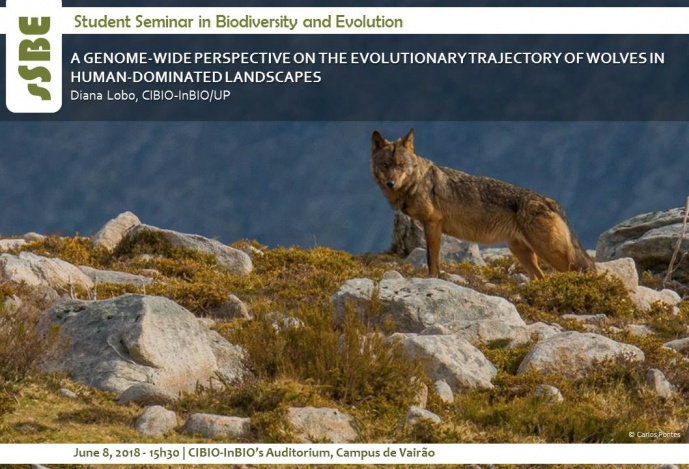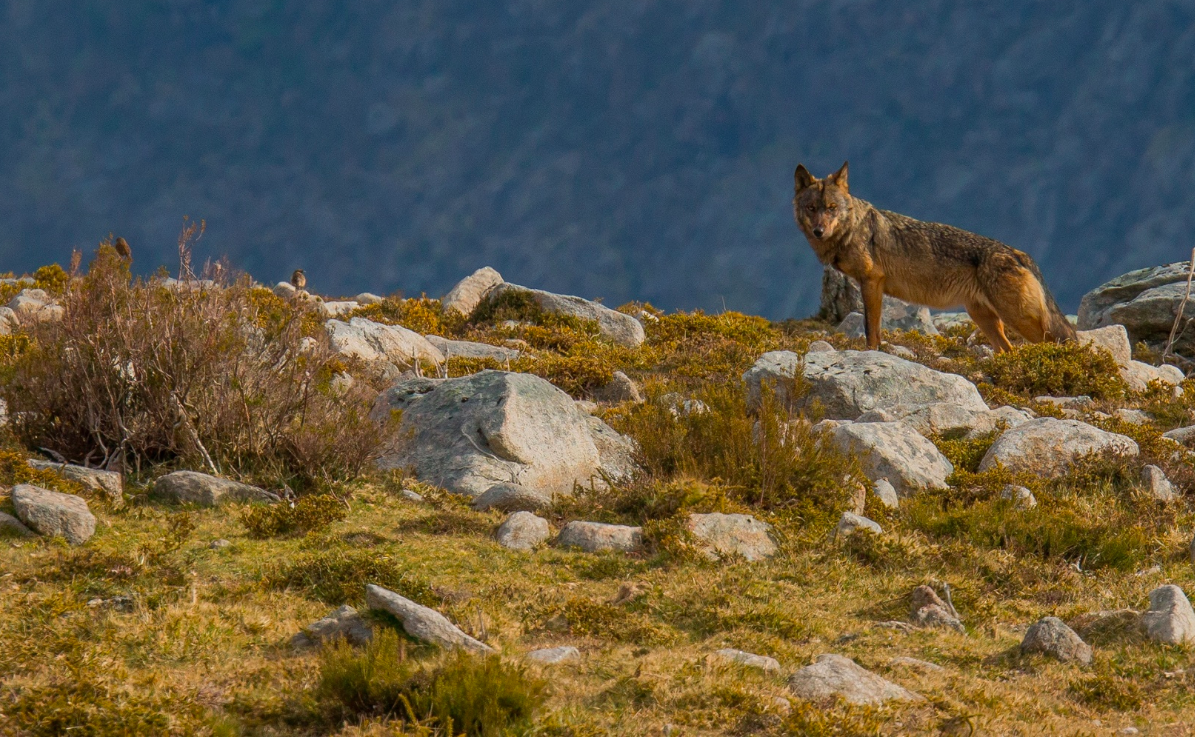A GENOME-WIDE PERSPECTIVE ON THE EVOLUTIONARY TRAJECTORY OF WOLVES IN HUMAN-DOMINATED LANDSCAPES

STUDENT SEMINAR IN BIODIVERSITY AND EVOLUTION

Dogs and wolves are nearly identical in their genome, contrasting with the remarkable differences in behaviour and morphology, which result from a strong human-mediated selection. This phenotypic differentiation can be disrupted by hybridization that although being considered a major conservation threat, it has also been suggested as a mechanism for the adaptation of populations to different environmental selective pressures. The Iberian wolf offers an excellent model to study adaptation to highly humanized landscapes because it has occurred for thousands of years in landscapes profoundly modified by livestock and agriculture, living today in high-human density areas. In contrast to the majority of Central European populations, Iberian wolves were able to survive with intense human persecution in the last century and were never fearing extinction. During my PhD we will try to identify the genetic basis of this adaptation, focusing both on the possible impact of hybridization on the evolutionary trajectory of the Iberian wolf and on a possible behavioral drive towards living in human-dominated landscapes. We will investigate three main hypotheses:
i) historical hybridization may have enriched the genetic legacy of the remnant wolf population, allowing its adaptation to a profoundly human-dominated landscape;
ii) patterns of brain gene expression related to specific behavioral genes match closer to dog patterns than to wolves occurring in wild landscapes and
iii) a process of self-domestication may be occurring, which could conform to a process of parallel evolution to domestication triggered by adaptation to human-dominated landscapes, or it could conform to old hybridization events with the dog and the subsequent introgression of “domestication genes” favouring the emergence of this phenotype.
Diana Lobo is graduated in Applied Biology from the University of Minho and holds a MSc in Biodiversity, Genetics and Evolution from the Faculty of Sciences of the University of Porto. Diana is currently in her second year of the BIODIV PhD Program, working under the supervision of Dr. Raquel Godinho (CIBIO-InBIO/UP) and Dr. John Archer (CIBIO-InBIO), and is part of the ECOGEN group at CIBIO-InBIO.
[Host: Raquel Godinho, Ecogenomics]
Image credits: Carlos Pontes